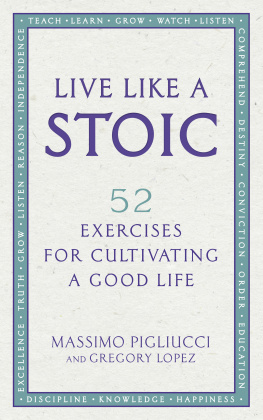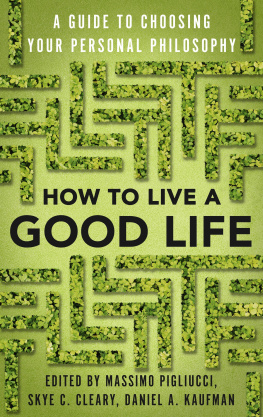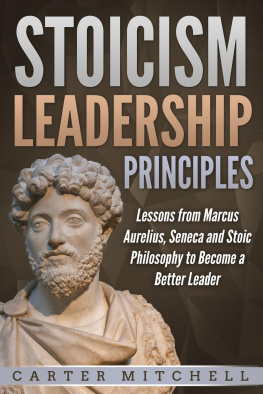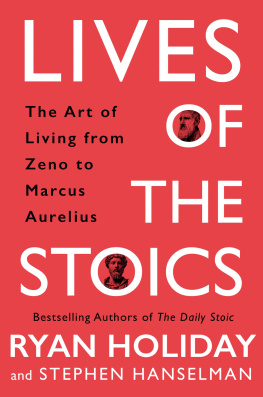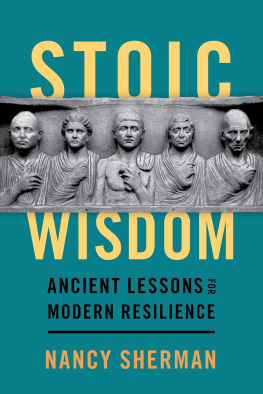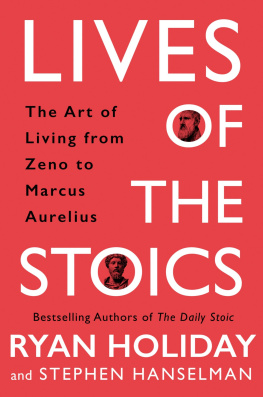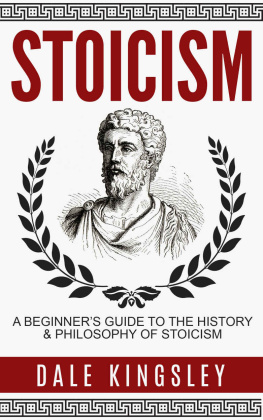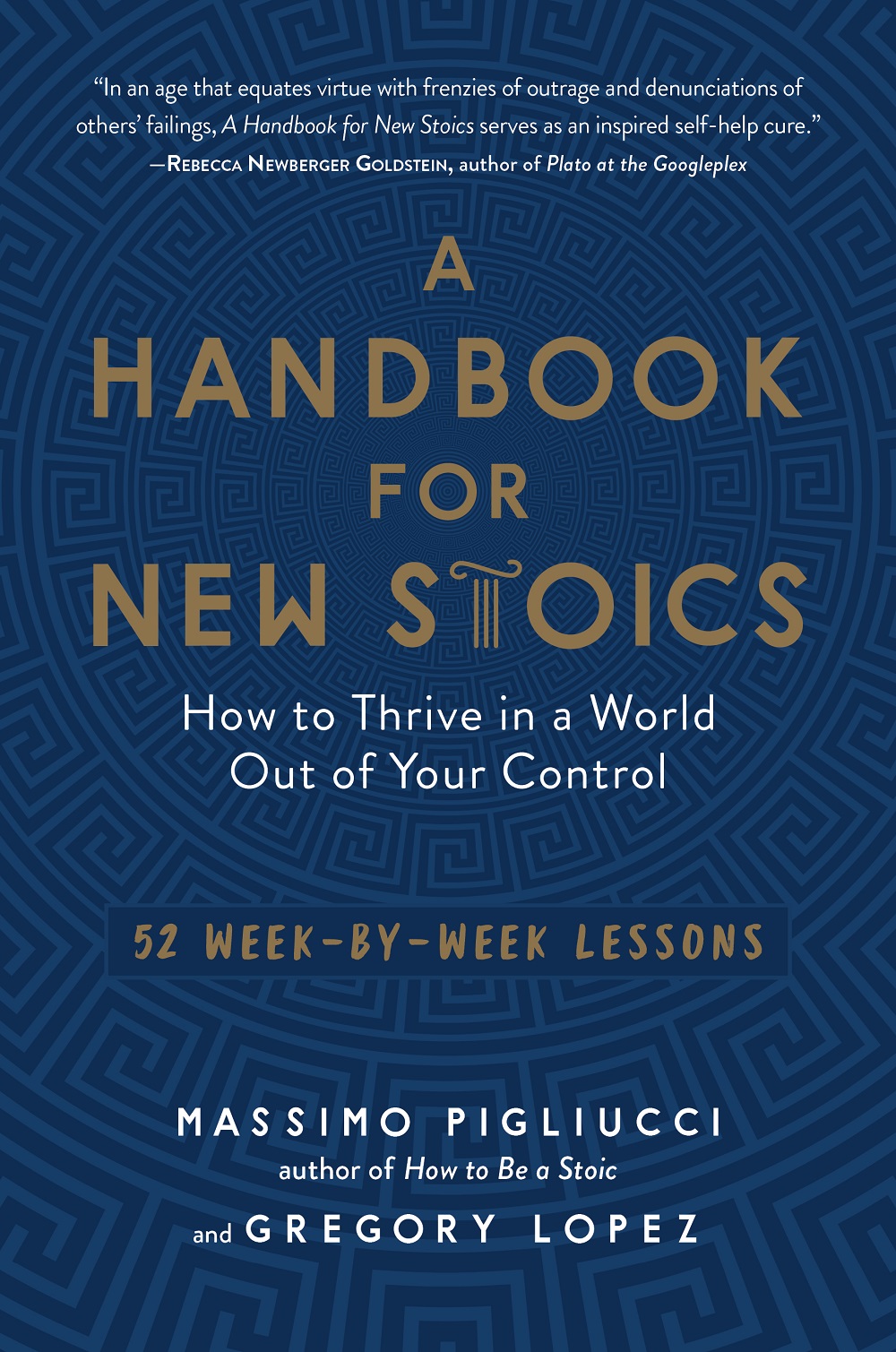

Before you begin, take a moment to briefly rate yourself on the following items, which evaluate the main goals of the Discipline of Desire. After you complete Part I, you can answer these questions again to see if youve made progress.
Rate how much the following statements describe you as you currently are on a scale of 1 to 10, with 1 meaning it doesnt describe you at all and 10 meaning it describes you perfectly.
To print a blank version of this exercise, please go to our web page for the book: theexperimentpublishing.com/?isbn=9781615195336.
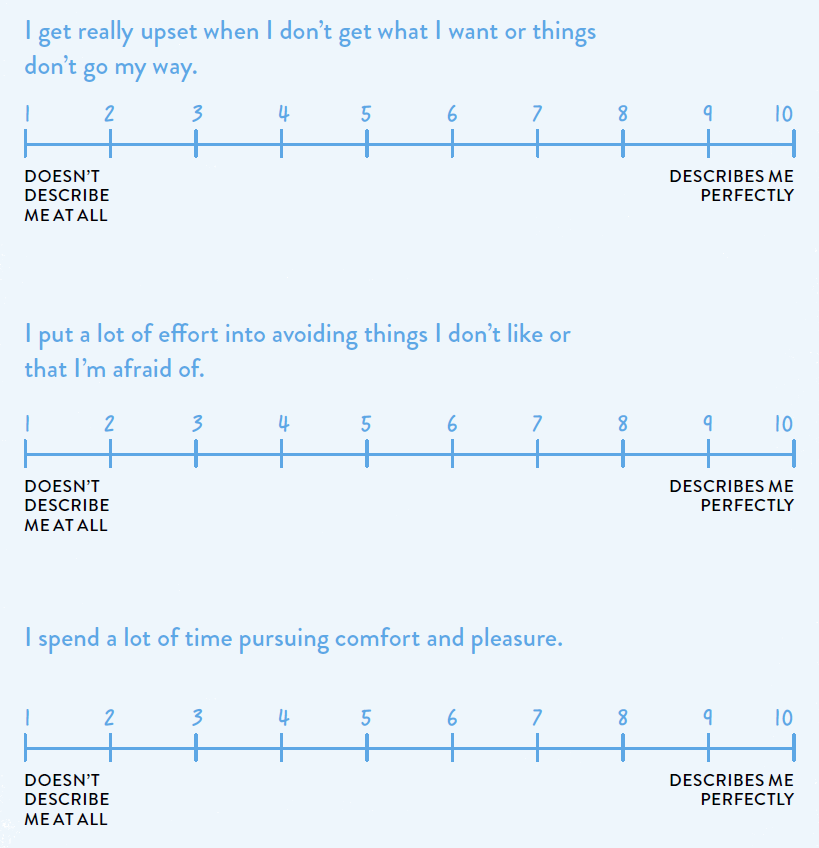

This weeks exercise will help you explore the dichotomy of control. Take time now to choose when youll do the exercise each day for the rest of the week. Try to place the exercise toward the end of the day. You can plan to do it at a specific time (e.g., at 9:00 pm ) or after an activity you do every day (e.g., brushing your teeth at night). Note down when youll do this exercise.
Sit down at this time Monday through Saturday of this week and choose something that happened that day to write about. It can be anything from seeing a friend for lunch to a meeting at work. We suggest that you choose an event that wasnt too emotionally upsetting, which could make the exercise more difficult, and youre just starting out! List what aspects of the event were completely in your control and which werent. It may help to add some quick reasons why the thing was or wasnt in your complete control.
If you have trouble with the exercise, you can use Epictetuss suggestions of separating out value judgments, impulses, and what you wished to avoid or obtain, as things under your complete control. You can also try separating aspects of the event by internal factors (thoughts, desires, wishes) and external factors (results), since we can mostly control what goes on inside our heads, and much of what we cant control happens in the outside world. Dont feel shackled to these categories. Part of the goal of this exercise is to see whether Epictetuss suggestions hold true to your experience. Perhaps youll find he was correct, and perhaps not.
Lets look at an example of how this would work. Suppose Alice chooses to do this exercise every day after her daily evening jog. After she runs, she sits down and chooses a meeting with her boss as the event shell focus on. Heres what she writes.
Met with the boss at 2 pm to discuss latest sales numbers. I was a little nervous going in since Im not quite at quota yet. We sat down and discussed what action steps I could take to reach quota by the end of the quarter. A lot of the suggestions were useful.
Notice that Alice chose an event that she was a little nervous about, but that wasnt extremely distressing for her. After Alice writes about the event, she rereads the narrative, looking for things that were completely within her control. She comes up with the following list.
Complete control | Incomplete control |
The intent to show up on time to the meeting | Actually showing up on time (I could have been delayed by that business call that ran over before the meeting!) |
Valuing my bosss opinion of me and my work | My bosss actual opinion of me and my work |
The wish to meet my quota | Meeting my quota (I cant force people to buy from me) |
The desire to get actionable tips from my boss (itd help meet most of my goals above!) | Actually getting useful tips |
Conscious nervous thoughts/what I tell myself | Automatic nervous thoughts and the physical feelings of nervousness |
Alice repeats this exercise daily through Saturday after her run.
Notice that the left-hand column is mostly filled with internal things like wants, desires, wishes, and conscious intentional thoughts. The right-hand column is mostly filled with external results. The exception is the final row, which has automatic thoughts and physical sensations as not within complete control. This highlights the important point that not everything that goes on in our bodies and minds is willed. Alice didnt choose for her heart rate to rise, nor did she rationally decide to dwell on worst-case scenarios. However, once those have occurred, she can consciously choose what to tell herself and how to act in spite of those automatic responses.
Now its your turn. Over the next week, use the following grid for this exercise.
To print a blank version of this exercise, please go to our web page for the book: theexperimentpublishing.com/?isbn=9781615195336.
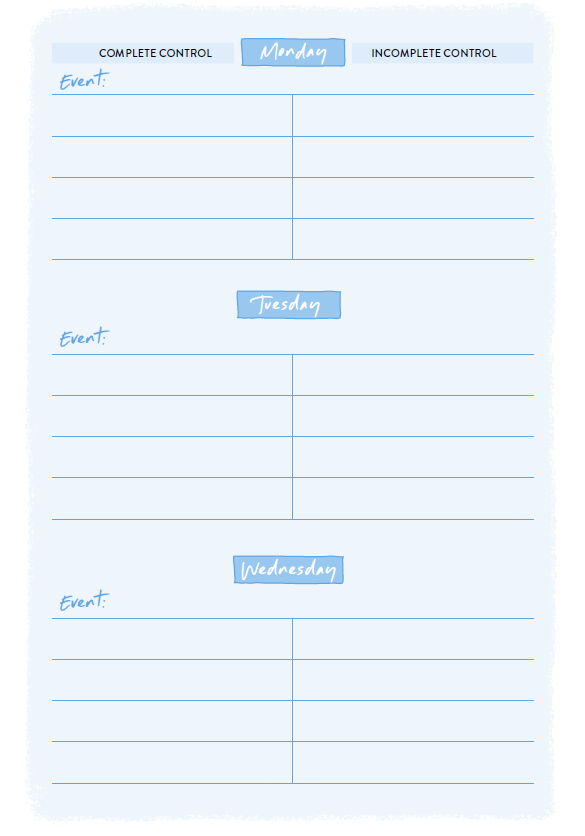

By doing this exercise daily, looking at specific events in your life, youll start to internalize what is really under your complete control and what isnt. As this principle sinks in, you will be equipped to practice the Discipline of Desire in future exercises. This exercise will also give you a clearer picture of what exactly you should focus your desires and aversions on to achieve peace of mind.

On the seventh day of the week, after youve practiced exploring the dichotomy of control, set a timer for 5 to 10 minutes and write your impressions in your journal. Remember you can download a printable PDF of this book's journal pages, exercises, and other prompts at the web page for this book: theexperimentpublishing.com/?isbn=9781615195336. Was this weeks exercise useful to you? How? Did you discover anything about yourself or your world? Did you find it useless? Is there any way you could tweak your approach to make it easier or more useful in the future?

Youre now ready to read the next chapter and prepare for next week.

This week, we begin by building on last weeks exercise. Youll do this in two broad steps.
- Look for patterns from your lists from last week to see how aversions to things outside of your control may have been influenced by things within your complete control.
- Explore how to transfer your aversions from those things that arent under your complete control to those that are.
First, flip back to what you wrote for last weeks exercise and write down things in your Incomplete control column that describe something you were averse to. In Sukis case, its the results from the cardiologists exam.
Next page

